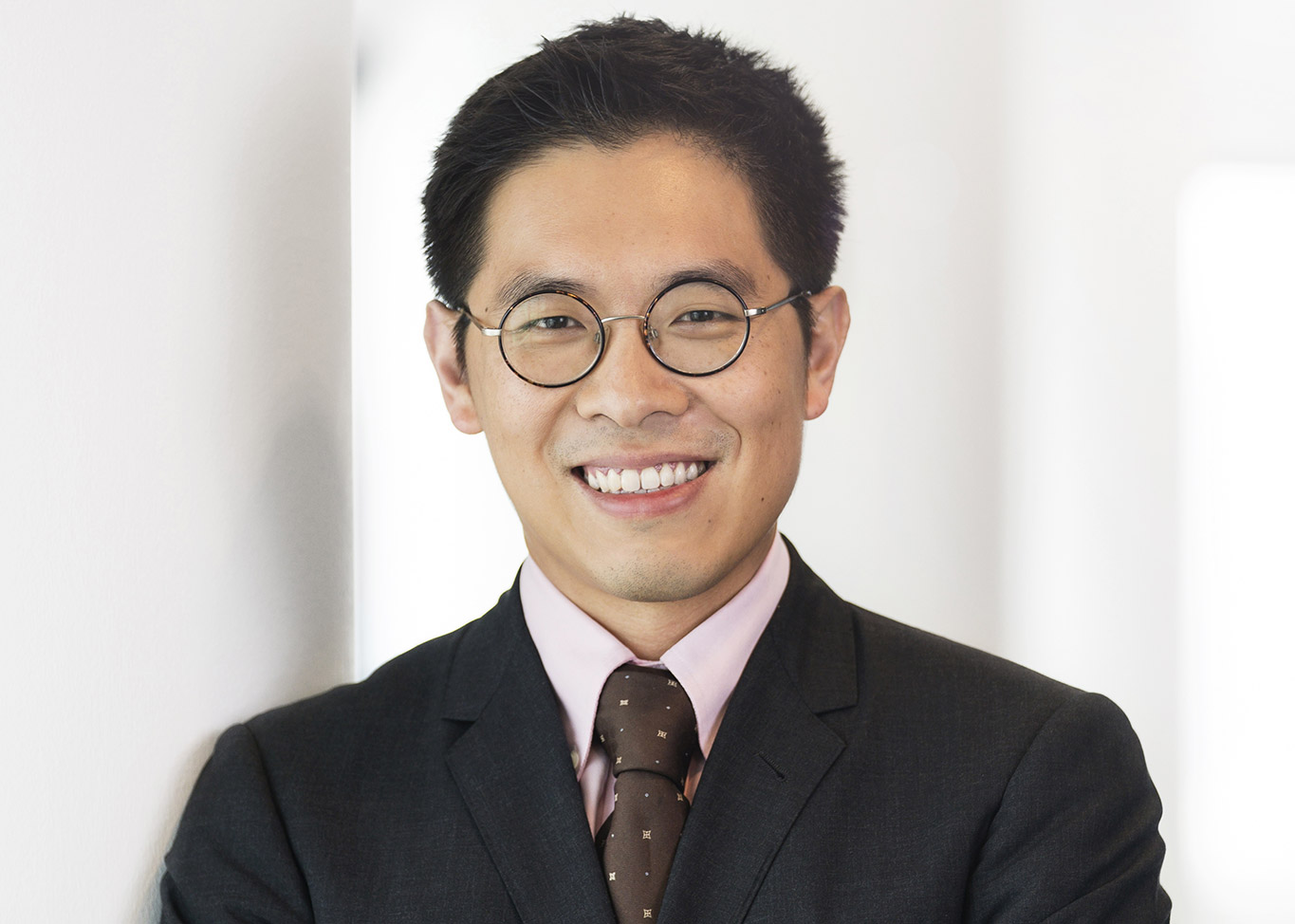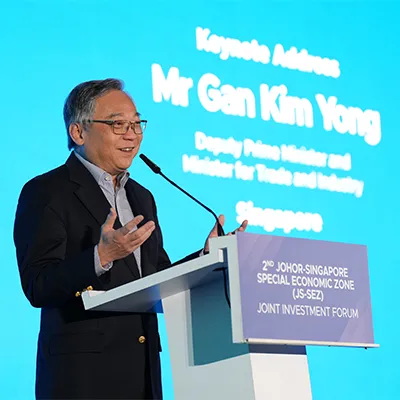An internet gold rush is afoot in Jakarta, with startups disrupting business and improving Indonesian lives. Managing Director at the Singapore Economic Development Board Chng Kai Fong shares how Singapore can help play a role in this transformation of Indonesia's digital economy.
Landing in Jakarta, I feel immediately the presence of Indonesian technology giants. Online travel agent Traveloka’s billboards greet visitors at the airport. As I head out, my cabby honks at the Go-Jek and Grab motorcyclists weaving in and out of traffic. The banners of online marketplaces Tokopedia, Bukalapak and Shopee line the streets, advertising generous cashbacks for the latest Samsung mobile phone. An internet gold rush is happening in Jakarta, with startups raising millions of dollars in capital.
Mr Willson Cuaca, the Managing Partner of East Ventures, can be called Indonesia’s “seed king” - seeding not of the agricultural, but financial variety. He saw the start of this tech boom, writing the first cheques for several Indonesian unicorns and funding 70 per cent of all Indonesian Series A startups.
A unicorn is a startup valued at US$1 billion or more, while Series A funding refers to the initial round of an institutional investment. Indonesia has at least four unicorns today – Go-Jek, Traveloka, Bukalapak and Tokopedia. Willson claims his secret is investing in people; his record speaks for itself.
Recently, he invested in Mr Agung Bezharie Hadinegoro, his former colleague and an alumnus of the Bandung Institute of Technology. Agung wanted to build a shelter for Go-Jek riders, but after seeing them congregate at warungs, or convenience shacks that serve drinks and snacks, Agung pivoted: Why not soup up the warungs with technologies such as wi-fi, charging points and cloud-based point-of-sale (POS) systems, and lease them out? That would increase the incomes of warung owners while providing shelter to riders.
Over a cup of Horlicks, Agung introduces me to the very first Warung Pintar owner, who tells me she makes three times what she used to earn.
In just six months, there are now 35 Warung Pintars in Jakarta, with 90 workers. His aim is to have 55,000 such shacks in Greater Jakarta within three years.
Indonesia, disrupted
Since President Joko Widodo urged his countrymen to embrace technology as an engine for Indonesia’s growth and for Indonesians to enhance their quality of life, many young Indonesian technopreneurs have heeded his clarion call. They are driven not just by the promise of making it big, but by a mission to improve the lot of their countrymen.
This resolve is disrupting every sector, and rapidly changing the lives of ordinary Indonesians. Take the banking sector as an example. Only 30 per cent among Indonesia’s population of 260 million have bank accounts, and even fewer – two per cent - have credit cards.
But while Indonesia’s largest bank has 12,000 cross-country brick-and-mortar branches, in just one year, Palembang-born Hendra Kwik has set up 100,000 virtual mobile banks, particularly in hard-to-reach rural areas, by installing his Payfazz app on the smartphones of convenience store owners there. Now, anyone can now pop into these stores to pay utility bills, shop online, or even invest.
Indonesian startups are also innovating and creating new business models. For instance, ride-hailing firm Go-Jek is more than just an Uber clone. They have Go-Med (medicine delivery); Go-Play (akin to Netflix) and Go-Clean (housekeeping services), while Traveloka now earns more from shopping vouchers than it does from trip bookings.
There is palpable excitement as the potential for change and scale is immense. Indonesia’s middle class is growing fast and consuming more than ever. Last year (2017), sales of cigarettes and instant noodles fell for the first time, while sales of high-value items such as cosmetics and smartphones rose. Everyone desires a better life.
Indonesia has a big market with a growing digital economy. Singapore has a dense network of digital talent and is a regional hub for many multi-nationals. These are complementary strengths, and if both countries work together, they can be more than the sum of their parts.
Singapore-Indonesia connection
So how are both countries working together?
First, Singapore and Indonesia are starting to connect the startup ecosystems of both countries; there has been some success under the Singapore Economic Development Board (EDB)’s Global Innovation Alliance.
Last year, venture catalyst SGInnovate and Indonesian co-working space chain Cocowork came together to build an accelerator programme, which has led to 36 Indonesian startups.
Also, the National University of Singapore’s (NUS) entrepreneurial arm, NUS Enterprise, partnered Indonesia’s Salim Group to set up a satellite of Singapore’s successful startup incubator Block 71 in Jakarta, as a gateway for start-ups of both countries to access talent and capabilities. It’s now packed to the rafters, and those backing it are looking to take it beyond Jakarta.
Then, earlier this year, the foreign ministers of both countries inaugurated the Nongsa Digital Park in Batam which now hosts more than 30 companies. This park sits alongside Infinite Studios, a Singapore-based integrated media entertainment and creative services company with 400 Indonesian employees, which is making tomorrow’s ASEAN blockbuster. Both Infinite Studios and Nongsa were developed by Indonesia’s Citramas Group, with support from EDB.
Second, both countries are working together to help our people gain valuable skills in the new economy.
For example, Singaporean Oswald Yeo, founder of the human resource placement and technology services startup Glints, has thus far placed more than 80 Indonesian tech talents in Nongsa. To meet the strong demand for such talent, Mr Yeo also offers scholarships targeting 150 Indonesian youths. It complements EDB and Temasek Foundation International’s programme with Singapore polytechnics to train Indonesian lecturers in digital literacy.
Similarly, the opportunity to work and operate in Indonesia allows Singaporeans to pick up valuable new skills, given the scale and growth of ASEAN’s largest economy.
EDB’s ASEAN-ready Talent programme is placing Singaporean graduates for work in Indonesian companies and startups. Singaporean polytechnic students are also interning at Indonesian startups. I hope more Singaporeans will take on such opportunities to know our neighbours better.
Third, both countries should continue to encourage the flow of startups into each other’s markets. This can create jobs for both Singaporeans and Indonesians.
Many Singaporean startups, such as 99.co, Grab and Glints are operating in Indonesia, training and employing Indonesians. Similarly, Indonesian unicorns such as Go-Jek and Traveloka have set up tech hubs in Singapore, to take advantage of Singapore’s diverse technology talents. Indonesians are working alongside Singaporeans and other multi-national talent, analysing data and building products.
Recently, after a meeting at one of Jakarta’s many Instagram-worthy cafes, I rushed to the airport for a 5pm flight. Alas, I was stuck in traffic and could only catch a 7pm flight. The pilot announced that the plane had a hydraulic leak. After an hour on the tarmac, everyone had to disembark. I decided to stay at the airport hotel and take the next earliest flight out; it was better than waiting indefinitely.
Upon reaching the hotel, I was informed that my original flight would be taking off after all.
I guess that is a fitting takeaway from Indonesia –you have to accept its traffic jams and other hiccups along the way which might disrupt your best-laid plans. But if you don’t show up, you will miss opportunities.
The futures of Singapore and Indonesia are closely intertwined. If both countries continue to work together, the opportunities for both are limitless. It’s time Singaporeans and Indonesians got to know one another better.
Chng Kai Fong is the Managing Director of the Singapore Economic Development Board.
This article first appeared in the Opinion section of The Straits Times, on 9 October 2018.








